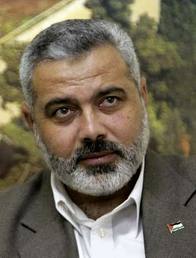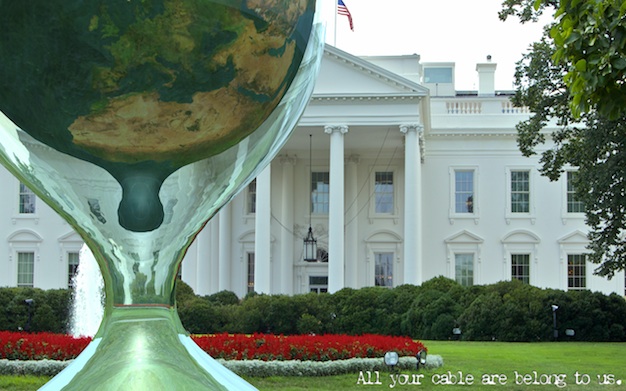From the Guardian's timeline, rewritten for chronology and with legal terminology:
The hearing opened with Clare Montgomery QC, for the Crown Prosecution Service on behalf of the Swedish authorities. Opening submissions are that the Swedish prosecutor, Marianne Ny, is asserted to be an issuing authority for the purposes of a European Arrest Warrant (EAW).
In relation to the offences, the court decides that the alleged victims are to be called Woman A (three counts of sexual assault alleged) and Woman B (one count of r*pe alleged)
Ms Montgomery says the matters are extraditable offences because the definitions in the two countries are the same. "Mr Assange had sexual intercourse with her and exploited the fact that she was asleep." This is submitted to be an offence under English law. In relation to Woman A there are three counts of sexual assault "without consent" and again contrary to English law.
 Hundreds of Hamas supporters in Gaza City protested in the streets on February 3 in support of the Eyptian revolutions and against Egypt's president Hosni Mubarak with the apparent tolerance or encouragement of the Hamas government. But later this week, a group of journalists and bloggers who organized their own protest had their protest broken up. Six women and eight men were arrested, and two of the women were beaten.
Hundreds of Hamas supporters in Gaza City protested in the streets on February 3 in support of the Eyptian revolutions and against Egypt's president Hosni Mubarak with the apparent tolerance or encouragement of the Hamas government. But later this week, a group of journalists and bloggers who organized their own protest had their protest broken up. Six women and eight men were arrested, and two of the women were beaten.
In Ramallah rallies were also broken up before they started. The Palestinian Authority police beat protesters with clubs and arrested two at a rally for Egypt in front of the Egyptian embassy on Sunday. "Our rally was simply in support of Egypt," one protester told Ma'an by phone, "we said nothing against the PA, we were not even out in the street." Earlier the same day, the Palestinian Authority had organized a rally in support of Mubarak which accused Egyptian opposition leader Mohammed El Baradei of being a CIA agent. The pro-Mubarak rally attracted a few dozen, the rally for the Egyptian people hundreds.
The rallies now appear to have changed from simply supporting Egypt to including calls for reform in Gaza. A Facebook page appeared on January 28 calling for a revolution in Gaza and naming February 11 a day of protest against the Hamas government. Four days later, another page was set up on Facebook, calling for a revolution in Ramallah and the ouster of President Mahmoud Abbas.
 The Telegraph: Israel's secret hotline to the man tipped to replace Mubarak
The Telegraph: Israel's secret hotline to the man tipped to replace Mubarak
"The new vice-president of Egypt, Omar Suleiman, is a long-standing favourite of Israel's who spoke daily to the Tel Aviv government via a secret "hotline" to Cairo, leaked documents disclose."
El País: Estados Unidos cree que nunca se sabrá si el expresidente chileno Eduardo Frei fue asesinado (The United States believe it will never be known if the Chilean ex-president Eduardo Frei was assassinated)
"El que fuera máximo mandatario entre 1964 y 1970 murió tras someterse a una operación rutinaria de hernia en la que contrajo una infección bacteriológica. (The one who was maximum leader of Chile between 1964 and 1970 died after a routine hernia surgery in which he got a bacteriologic infection.)"
El País: SCENESETTER FOR VISIT OF SPECIAL ENVOY MITCHELL TO DAMASCUS
Even though Tunisia's dictator for 23 years, President Zine al-Abdine Ben Ali has been forced to flee the country and is currently a fugitive from an Interpol international arrest warrant with his assets frozen in Tunisia and Europe, the very difficult task of thoroughly rooting out the old regime and building a new Tunisia continues.
While many are still troubled by the fact that long time Ben Ali crony Prime Minister Mohamed Ghannouchi remains the head of government, there haven't been many street protests in recent days. After a major government reshuffle purged it of Ben Ali loyalists, most people seem to have adopted a wait and see attitude and started to get back to normal life.
“I think the pressure that was put on the government has borne its fruit, meaning that we have obtained good concessions,” was the way Kamel Ben Hamida, a resident of Tunis, put it. “It would be more reasonable to stop asking for the government to fall.”
 El País: El Arma es la Red (The Weapon is the Web)
El País: El Arma es la Red (The Weapon is the Web)
"Los papeles de Wikileaks revelan cómo los blogueros de Egipto iniciaron su rebelión en 2005, se inspiraron en la revuelta de Irán y usaron Facebook para enfrentarse a la dictadura. (The Wikileaks documents unveil how bloggers from Egypt started their insurrection in 2005, got inspired by the one in Iran and used Facebook to face the dictatorship.)"
El País: Guatemala's congress reinstates data protection: the end of the problem that refused to go away
"Guatemala's Congress passed legislation by an overwhelming majority to reinstate data protection for drugs and agrochemicals, paving the way for consideration of the CAFTA in the U.S. Congress. This was the end of a drama played out over years that was fraught with misinformation, conflict of interest, partisan politics, and a pronounced lack of decisiveness by top political leaders. It has consumed in aggregate more of our full-time attention than any other issue in recent months. Most of what follows has been reported in e-mails and, to a lesser extent, cables as we have moved from one operational crisis to the next. Here, we lay out more systematically the extent of the problem, the forces at play, and the efforts of many to succeed on an issue where the easy arguments lie on the other side."
El País: Next steps for Thailand's compulsory license bid
 As predicted, Syria's day of rage did not meet with the same response as that of others in the region. "The only rage in Syria yesterday was the rage of nature," wrote Syrian journalist Ziad Haidar, in reference to a cold spell and heavy rain on the day of the protest. While the facebook group promoting the day of rage attracted many followers, there were several key differences separating Syria from Egypt or Tunisia. Facebook is banned in Syria, and the page was reportedly set up by expatriates. Although it gained 15,000 followers by Friday, most were also believed to be non-resident. The Syrian government has been extremely vigilant about quelling opposition to the forty year government of president Bashar al-Assad and his father. The country has an anti-US, anti-Israel foreign policy that is popular at home and Assad is also seen to be slightly more open to change than others in the region.
As predicted, Syria's day of rage did not meet with the same response as that of others in the region. "The only rage in Syria yesterday was the rage of nature," wrote Syrian journalist Ziad Haidar, in reference to a cold spell and heavy rain on the day of the protest. While the facebook group promoting the day of rage attracted many followers, there were several key differences separating Syria from Egypt or Tunisia. Facebook is banned in Syria, and the page was reportedly set up by expatriates. Although it gained 15,000 followers by Friday, most were also believed to be non-resident. The Syrian government has been extremely vigilant about quelling opposition to the forty year government of president Bashar al-Assad and his father. The country has an anti-US, anti-Israel foreign policy that is popular at home and Assad is also seen to be slightly more open to change than others in the region.
Approximately 10,000 political prisoners are currently being held in Syrian jails. A national state of emergency has been in effect in Syria continuously since 1963 and it is consistently used to suppress and punish any dissent. According to Amnesty International's report on Syria for 2010, "Critics, human rights defenders, alleged opponents of the government and others were detained, often for prolonged periods; some were sentenced to prison terms after unfair trials. Torture and other ill-treatment remained common, and were committed with impunity; there were several suspicious deaths in custody. The government failed to clarify the circumstances in which [17 prisoners and five others] were killed at Sednaya Military Prison in 2008 and, again, took no steps to account for thousands of victims of enforced disappearances in previous years. Women faced legal and other discrimination and violence. The Kurdish minority remained subject to discrimination, and thousands of Syrian Kurds were effectively stateless. At least eight prisoners were executed."
Context
Julian Assange was placed in international proceedings based on a European Arrest Warrant issued by Swedish prosecutors. European Union (EU) countries have a treaty that facilitates the process of a speedy extradition from one EU country to another, and beginning on Monday, February 7, a two-day hearing at Belmarsh Woolwich Crown Court in south London will determine whether Assange will be extradited from the UK to Sweden to face sex-crime accusations. He has been accused but has not been charged.
If Assange should lose, he will be extradited to Sweden unless he appeals the decision and wins. If he appeals, the appeal would be made to the Administrative Court, but it could be several months before it is heard. If that appeal is lost, an appeal to the Supreme Court is possible but not guaranteed. If a second appeal to the Supreme Court were to be made and lost, there is a third possibility, an appeal to the European Court of Human Rights in Strasbourg. Again, the possibility of a third appeal is not guaranteed.
Extradition from Sweden to US
Whatever happens in Sweden once Assange is extradited (on the hypothetical assumption that he will be), the US may indict him and have him "temporarily transferred," with Sweden's consent, so that he may face prosecution in the US. This can be done, legally, either before or after Assange undergoes trial in Sweden, according to the US/Sweden extradition treaty supplement (pdf) .
 Yesterday in Bahrain, hundreds of protesters gathered after Friday prayers in front of the Egyptian embassy in Manama to support Egypt and also to call for reform of Bahrain's own government. The request to protest was rejected by the Interior Ministry on Monday and again later in the week, but the eight political societies organizing the event managed to obtain permission late on Thursday. The request was rejected on the grounds that it is illegal to hold gatherings near diplomatic missions in Bahrain, even though the same groups were allowed to protest a few kilometres from the Tunisian embassy last month. The groups include Al Wefaq National Islamic Society, Brotherhood Society, National Democratic Action Society (Wa'ad), Islamic Action Society (Amal), Democratic Progressive Tribune, Democratic Gathering Society, National Gathering Society and Islamic Arabic Wasat Society.
Yesterday in Bahrain, hundreds of protesters gathered after Friday prayers in front of the Egyptian embassy in Manama to support Egypt and also to call for reform of Bahrain's own government. The request to protest was rejected by the Interior Ministry on Monday and again later in the week, but the eight political societies organizing the event managed to obtain permission late on Thursday. The request was rejected on the grounds that it is illegal to hold gatherings near diplomatic missions in Bahrain, even though the same groups were allowed to protest a few kilometres from the Tunisian embassy last month. The groups include Al Wefaq National Islamic Society, Brotherhood Society, National Democratic Action Society (Wa'ad), Islamic Action Society (Amal), Democratic Progressive Tribune, Democratic Gathering Society, National Gathering Society and Islamic Arabic Wasat Society.
Bahrain, which is currently ranked 144 out of 178 countries on Reporters Without Borders Press Freedom Index for 2010, has also been looking this week at further censorship of social media in the country, particularly of Facebook. The Bureau of Information and Telecommunications Regulatory Authority are working to develop mechanisms that allow for greater government control of the movement of electronic communication sites, which they say could be used by some to "undermine the achievements of the State and the unity of their people, and this requires constant vigilance and awareness in this aspect". There are an estimated 200 thousand Facebook users in Bahrain, and approximately 70 per cent of them are young people.
 El País: Objetivo: matar a Osama Bin Laden (The Goal: kill Osama Bin Laden)
El País: Objetivo: matar a Osama Bin Laden (The Goal: kill Osama Bin Laden)
"Arabia Saudí propuso unir las fuerzas de seis países para capturar o asesinar al jefe de Al Qaeda, según revelan documentos secretos del Departamento de Estado de EE UU. (Saudi Arabia proposed to unify the strength of six countries to capture or assassinate the chief of Al Qaeda, according to secret documents from the State Department of the United States.)"
The Telegraph: Why Scots want to stay in the Union
"Scotland would remain part of the United Kingdom for “a generation” because of the economic crisis, the then Scottish secretary told US officials."
The Telegraph: Zardari is a numbskull, British told Americans
"British officials described Asif Ali Zardari, the Pakistani president, as “highly corrupt” and a “numbskull”, according to leaked documents."
The Telegraph: Tony Blair's fees the talk of Beijing
"When senior diplomats met in Beijing to discuss the burning issues of the day, one topic seemed to exercise them as much as any other – the size of Tony Blair’s lecture fees."
Amidst reports from newspapers like the Telegraph that secretary general of the Arab League, Amr Moussa, might be someone who takes over for President Hosni Mubarak, it seems worthwhile to look at what released WikiLeaks cables reveal about the US perception of Moussa. The US has close ties with Egypt and gives much military aid to Egypt. Although the people in Egypt revolting against Mubarak have the upper hand right now, any leader appointed to lead Egypt would likely have some support from the US.
At least since 2006, the issue of who would succeed Mubarak has been a foremost issue for the US. And, as indicated by 09CAIRO874, the US has noted Moussa could be a possible candidate for taking over the presidency:
Zhiwei (Jack) Chen's belongings were seized at a Georgia Institute of Technology dorm on Thursday Jan 27 on the basis of an FBI search warrant also issued to dozens of other individuals who remain unnamed. The FBI stated that these warrants were issued in connection with an ongoing investigation into cyber-attacks on "major companies and organizations." Wikileaks was not named but the elusive 'Anonymous group' was. The FBI writes in its press release:
A group calling itself “Anonymous” has claimed responsibility for the attacks, saying they conducted them in protest of the companies’ and organizations’ actions.
Chen is likely thought to be associated in some way with this 'group' of activists because he operated a chat room in which "Payback" topics were discussed. Tragically, however, the legal relevance of holding an online chat with an individual who claims to be "a member of" Anonymous has yet to be articulated. Here are some crucial considerations that must be addressed in any context in which "membership" in the "group" is alleged, for purposes of legal action.
Al Jazeera says this about the video piece which they showed for the first time this evening and put on YouTube minutes later, describes how "Tunisian members of Anonymous, the same group of hackers that targeted anti-WikiLeaks sites" are now supporting the struggle in Egypt. The piece features an interview with the Tunisian hacker anon.m. It is less than 2 minutes long:
 Julian Assange spoke today to a gathering in Melbourne organized by the WikiLeaks Defence Committee and the Australian Media, Entertainment and Arts Alliance, who presented Assange (via his lawyer) with his membership card in the union as a journalist.
Julian Assange spoke today to a gathering in Melbourne organized by the WikiLeaks Defence Committee and the Australian Media, Entertainment and Arts Alliance, who presented Assange (via his lawyer) with his membership card in the union as a journalist.
His filmed address, played to a free-speech forum at Federation Square in Melbourne, touched on a number of WikiLeaks' guiding principles as well as on immediate political pressures on the organization and on Assange himself. Repeatedly, he united those two concerns, principled and practical:
We at WikiLeaks recognize the difference between secrecy and privacy. ... We believe in transparent power, not in transparent people.
Via @Asher_Wolf and @joycelowenstein on Twitter, and Greg Mitchell at The Nation
There appears to have been a Malware cyber attack on the White House e-mail system, which has just been restored after experiencing an eight-hour outage Thursday. White House Communications Director Dan Pfeiffer announced from an official White House Twitter account at 11:45 that
WH unclassified email went down shortly before 8 AM. Verizon is working to solve the problem.Pool reports will be avail in press office
It is thought that the attack targeted UK diplomats, according to British Foreign Secretary William Hague, who spoke in Munich today at a security conference. Hague also discussed for the first time a series of cyber attacks launched on over the past year, including Zeus Trojan infections of the Foreign Office and malware purporting to be a report on a Trident missile (an intercontinental ballistic missile armed with nuclear warheads) last December.
On January 20, WL Central reported "Bloomberg discloses FBI Contractor admits to Spying on Swedish".
Yesterday, Bloomberg reporter Michael Riley 're-drafts' his flawed article as a magazine story in Bloomberg Business Week.
On the day the original Bloomberg article appeared, Andy Greenberg of Forbes reported that he interviewed Robert Boback of Tiversa about the original Bloomberg article claims:
Poverty and repression under President Ali Abdullah Saleh’s government in Yemen has moved Yemenis to mount an uprising. The “Day of Rage” yesterday was another demonstration intended to force Saleh to resign.
News organizations like NPR have reported since the revolt in Tunisia that Saleh has “ordered income taxes slashed in half and instructed his government to control prices” and “deployed anti-riot police and soldiers to several key areas in the capital and its surroundings to prevent riots.” But those moves have not stopped protests from taking place.
As highlighted in a previous post, Saleh has brutally neglected the needs of his people. According to NPR, “Nearly half of Yemen's population live below the poverty line of $2 a day and doesn't have access to proper sanitation. Less then a tenth of the roads are paved. Tens of thousands have been displaced from their homes by conflict, flooding the cities.”
4:00pm Cairo - In the face of unrelenting violence from Mubarak's thugs, protesters have come roaring back with a massive "Day of Departure" demonstration today as the White house scrambles to work out a deal in which Mubarak would leave immediately. Waving Egyptian flags and chanting the national anthem, protesters in their thousands are filling Tahrir or Liberation Square in Cairo as Friday pray lets out. More than a million people are reported to have flooded into Liberation Square, another million are reported in Alexandria and the numbers are still growing. Thongs of protesters can still be seen crossing the Nile River at the October 6th Bridge into Liberation Square. In the face of all the death, destruction and injury cause by the Mubarak regime in the past few days, the masses remain steadfast in their demand that "Mubarak must go now!"
While Egyptians continue to maintain their uprising against President Hosni Mubarak with a “Day of Departure" today, it is worth looking at what happened in Yemen yesterday. An opposition coalition of Yemenis mobilized in defiance of a plea from President Ali Abdullah Saleh to not protest, rally or engage in any sit-ins, and held their own "Day of Rage."
The protests were considered to be the largest anti-government demonstration that Saleh has “faced in his 32-year rule.” The Guardian reported protesters chanted, “Together we fight against poverty, corruption and injustice.” Given what has been happening in Egypt, the protesters hoped to mobilize in their Tahrir Square, but the government “beat them” to the Square and sent “hundreds of tribesmen to camp out there overnight.”
Protesters called for Saleh to “form a new government” and “let the Yemeni people decide who will rule them in clean, fair elections.”
 El País: EE UU descarta el derrumbe del castrismo (The United States rules out the fall of "Castrism" in Cuba)
El País: EE UU descarta el derrumbe del castrismo (The United States rules out the fall of "Castrism" in Cuba)
"Asegura que, a pesar del endeudamiento y el desabastecimiento en sectores clave, su economía "menos vulnerable" que hace 20 años. ([The United States] assures that, despite the debt and the lack of supplies in key sectors, its economy is "less vulnerable" than 20 years ago.)"
Aftenposten: Burma-Knu: Knu Seeks Preconditions for Talks
"Despite the Burmese regime´s offer reported in Ref A for unconditional talks with the Karen National Union (KNU), which has been waging a conflict against the regime for over 50 years, the KNU placed several conditions on its participation in future talks with the regime during its April 6 meeting with Thai FM Kasit, who has offered to be a facilitator for direct talks between the KNU and the Burmese regime. Though he characterized some of the KNU´s requests as unattainable, Kasit agreed to use them as the starting point for a discussion with Burmese PM Thein Sein he expects to have on the margins of the April 10-12 ASEAN Plus Three and East Asian Summits in Pattaya, Thailand. According to the NLDLA (National League for Democracy Liberated Areas), the exile group that claims to speak for Aung San Suu Kyi´s NLD (National League for Democracy), the FM also, at its request, agreed to explore possibilities for Thailand to serve as a facilitator for discussions between the NLD and the Burmese regime."
Aftenposten: Burma: Struggles at the Top Affecting Relief Effort
 The Telegraph: Sale of uranium mine blocked over Iran fears
The Telegraph: Sale of uranium mine blocked over Iran fears
"The US intervened in the £371 million sale of a Canadian-owned mine in Africa because of fears that uranium ore would be sold to Iran, the leaked cables show."
The Telegraph: British firms made millions from trading with Iranians
"British companies made millions of pounds selling or leasing items to Iranian companies that were the subject of international trade sanctions, US Embassy documents show."
The Telegraph: Vanished FBI officer Robert Levinson 'held by Iranian Revolutionary Guards'
"A former FBI officer who disappeared in mysterious circumstances in Iran four years ago has been held by the country’s Revolutionary Guard, the cables suggest."
The Telegraph: William, Harry and the Abramovich of Azerbaijan
"Princes William and Harry are on friendly terms with a young billionaire whose family wealth has been the subject of intense scrutiny by US officials, the documents show."
The Telegraph: Chinese weapons fall into hands of insurgents
Theme by Danetsoft and Danang Probo Sayekti inspired by Maksimer